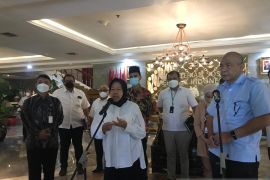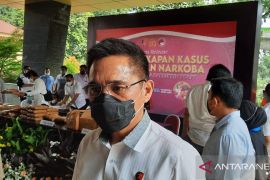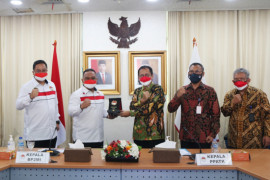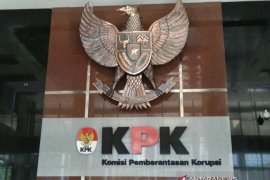"In order to prosecute Nazaruddin in absentia, the Corruption Eradication Commission (KPK) should use the Anti-Money Laundering Law," Fitriadi Muslim said in a public discussion on the polemics of Nazaruddin case here over the weekend.
The discussion was attended by Febri Diansyah of the Indonesia Corruption Watch (ICW), Martin Hutabarat of the House Commission III on legal affairs and Sulfikar Amir of the Singapore Nanyang University.
Fitriadi said that by using Law No.8 / 2010 on Money Laundering, the KPK can try Nazaruddin without his presence.
Fitriadi who is also chairman of the PPATK`s group for regulation affairs said that Nazaruddin could also protest the court`s decision in absentia if he was not satisfied.
"Nazaruddin can come in person to protest and express his dissatisfaction of the court verdict," he said.
In the meantime, ICW activist Febri Diansyah reminded that the KPK should not use the anti money laundering law because important explanations on cases and people in his circles could not be obtained directly.
"Nazaruddin should not be tried in absentia because KPK needs a lot of explanations directly from him," Febri said.
Febri said that KPK, which is investigating the case of alleged corruption in the construction of a SEA Games athlete house in Palembang (South Sumatra) and has named Nazaruddin as one of its suspects, can use Nazaruddin`s explanations to enter into other cases which were still undisclosed.
On the occasion, Fitriadi said that the PPATK found about 109 suspicious financial transactions in the accounts of Nazaruddin.
He said that of the 109 transactions, a number of transfers went to several accounts belonging to individuals and certain companies.
Of the suspicious transactions, six have been reported law enforcers such as the KPK.
"Based on the law, PPATK is now allowed to disclose publicly the names of the recipients and the sources of the flows of the funds," he said.
(Uu.A014/H-NG/B003)
Editor: Priyambodo RH
Copyright © ANTARA 2011










